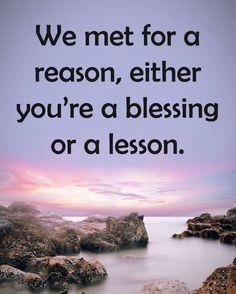《自律養生實踐家之旅345》 2025 長斷食隨記

「長斷食」是我們對三週斷食的稱呼,不僅是一段個人的修行,更是一群人共同進行的旅程。群體的力量,既是支撐,也是責任,因為不願辜負彼此,所以能堅持下去。
熟練斷食後,我幾乎每年都會安排一次長斷食。早期往往是心血來潮,邀集幾個同伴一起嘗試;也曾把它作為專注寫作的開端,往往在前三週產出大量文字。
經常有人問我:「為什麼要做長斷食?」,但我覺得,真正該問的其實是:「為什麼不做長斷食?」
這一路上,長斷食的同伴常被親友質疑。那些「不吃會沒營養」、「不吃會死」的論調,正是健康的最大障礙。當年我背起推廣斷食的行囊,也曾反覆思索:「誰會願意學習這種違反民間思維的行為?」雖然理不出答案,但我始終堅信,一定會有人願意。
酵素工廠老董親口分享一位肝癌末期痊癒的斷食故事,讓我深受觸動。我一向不輕信見證,但當事人真切的敘述,恰好呼應了我對斷食的理念。
最常被問到的問題是:「斷食多久做一次?」,時間久了我才明白,這問題背後是一種不確定。若回答「十年一次」,聽者是不是會感覺容易得多。
因此,整理學員的動機,成為我工作的一部分,也成為一門深奧的人性課題。人的內心最為複雜,再有經驗,也可能被偽裝所蒙蔽。
以一週的飲食計畫來說明,若一週吃滿 21 餐,完全沒有給身體一絲喘息的空間,體內累積的毒素必然驚人。要扭轉這個局面,不能一天三餐不間斷,也不能連一週一天讓身體喘息都做不到。
我們有義務為身體安排「停損」,因為熟食累積的毒素過於可怕,唯有斷食才能讓人真正領悟。即便再謹慎飲食,腸道仍殘留食物,加上深層宿便的堆積,長斷食的必要性便顯而易見。
腸道究竟能藏多少惡臭的宿便?人類世界不可能有針對這問題的研究。唯有執行過長斷食的人才知道,那些永遠挖不乾淨的汙垢,必須靠身體一步步計劃性的移除。
早期,我曾為自己設下「每季七日斷食」的計畫,自認已經夠積極。如今回首,卻只能為當年的姑息與貪吃,向身體道歉。
我期許每位新人都能為自己安排至少每月一次的淨化,當我們從成果回望,便能理解這種頻率的合理。熟練之後,自然而然就會走進長斷食的深究。
至於「長斷食多久一次」,我已給出自己的答案:我們一群人共同驗證了「每半年一次」的可行性,並以三年六次的實踐,為身體立下「還給身體自主權」的意義。
對斷食陌生的人來說,這種頻率或許難以接受。但關鍵其實不在頻率,而在「陌生」,在沒有動機,在於最殘酷的事實:不愛自己。
因為斷食,我們看見了身體的真相。我們理解了身體有一條屬於它自己的時間軸,也更清楚所有養生專家的盲點。他們缺少這段旅程的經驗,終究對自己的身體陌生,他們的專業少了一塊關鍵拼圖。
為了健康,為了身體,為了人生,你做得到的事,為什麼不做?
這句話,我常用來提醒自己與學員。若要延伸,那就是:「做不到,為什麼?」
不會,可以學。不能,可以努力學。唯有不願意,才是真正的困境。
我早在書中寫過:斷食是「休息是為了走更遠的路」的最佳詮釋。結論不在於技巧,而在於我們用什麼態度去面對斷食。
經驗告訴我,有十個人願意學,就會有一百人願意學。問題從來不是「沒人願意」,而是「我們能否聚集足夠的同道者」。
最難、也最辛苦的地方就在「志同道合」,既要有志,又要入道;既要相同,又要契合。
因為人各有志,也因人各有命,我總在「做該做的事」之餘,提醒自己隨緣。
(我們相遇是有原因的,你不是一份祝福,就是一堂課。)
2025 Long Fasting Notes
“Long fasting” is the name we give to a three-week fast. It is not only a personal practice, but also a journey shared by a group. The strength of the community is both support and responsibility—because none of us want to let one another down, we are able to persevere.
After becoming proficient in fasting, I have almost made it a yearly practice to undertake a long fast. In the early days, it often began on impulse, inviting a few companions to try it together; at other times, it marked the beginning of a focused writing season, when I would produce a large volume of words within those first three weeks.
People often ask me: “Why do a long fast?” But I believe the more essential question is: “Why not do a long fast?”
Along the way, fasting companions are often questioned by family and friends. Remarks like “You’ll lose nutrition if you don’t eat” or “You’ll die if you don’t eat” are in fact the greatest obstacles to health. When I first shouldered the mission of promoting fasting, I too pondered again and again: “Who would be willing to learn something that goes against common sense?” Though I could not find an answer, I always held faith that someone would.
The founder of an enzyme factory once personally shared with me the story of a terminal liver cancer patient who recovered through fasting. I am not one to easily believe in testimonials, yet his vivid account deeply resonated, for it echoed my own convictions about fasting.
The question I am most often asked is: “How often should one fast?” Over time I realized that behind this question lies a kind of uncertainty. If I were to say “once every ten years,” wouldn’t that sound much easier?
Thus, clarifying people’s motivations has become part of my work, and it is also a profound study of human nature. The human heart is the most complicated thing; even with experience, one may still be deceived by appearances.
Take a weekly eating plan, for example: if one eats all 21 meals in a week without leaving the body any room to rest, the accumulation of toxins inside will inevitably be overwhelming. To reverse this, it cannot be three uninterrupted meals a day, nor can it be a week without even a single day of rest for the body.
We have the duty to arrange “stop-loss” points for the body, because the toxins from cooked food are too formidable; only fasting can awaken true realization. No matter how carefully one eats, the intestines still hold residues of food, compounded by the buildup of old waste. This is where the necessity of long fasting becomes evident.
How much foul waste can the intestines really hold? No one in the human world will ever conduct such research. Only those who have gone through long fasts know: those endless, unclean residues can only be systematically expelled step by step by the body itself.
In the beginning, I set for myself a plan of “seven-day fasts each season,” thinking it was aggressive enough. Looking back now, I can only apologize to my body for the indulgence and compromise of those years.
I hope every newcomer will arrange for themselves at least one purification a month. When we look back at the results, we will understand how reasonable such a rhythm truly is. With practice, one naturally finds oneself moving toward the deeper exploration of long fasting.
As for the question, “How often should one do a long fast?” I now have my own answer: together as a group, we have proven the feasibility of “once every six months.” Through six practices over three years, we have given new meaning to fasting: to return the body its autonomy.
For those unfamiliar with fasting, this frequency may seem difficult to accept. But the real issue is not frequency; it is unfamiliarity, it is lack of motivation, it is the cruel truth—not loving oneself.
Through fasting, we have seen the truth of the body. We have realized that the body follows its own timeline, and we have also become more aware of the blind spots of all health experts. They lack the lived experience of this journey; in the end, they remain strangers to their own bodies. Their expertise misses a critical piece of the puzzle.
For health, for the body, for life itself—if it is something you can do, why not do it?
This is a line I often use to remind myself and my students. And to extend it further: “If you cannot do it, why not?”
If you don’t know how, you can learn.
If you cannot, you can work hard to learn.
The only real obstacle is not being willing.
I once wrote in a book: fasting is the best interpretation of the saying, “Rest is for walking a longer road.” The conclusion lies not in technique, but in the attitude with which we approach fasting.
Experience tells me: if ten people are willing to learn, there will be a hundred more who will. The problem has never been “no one is willing,” but rather “can we gather enough like-minded companions?”
The hardest and most demanding part lies in this: kindred spirits. One must have the will, and also enter the Way; one must be alike, and also in harmony.
Because each person has their own will, and each has their own destiny, I always remind myself, while doing what must be done, to let things follow their course.


